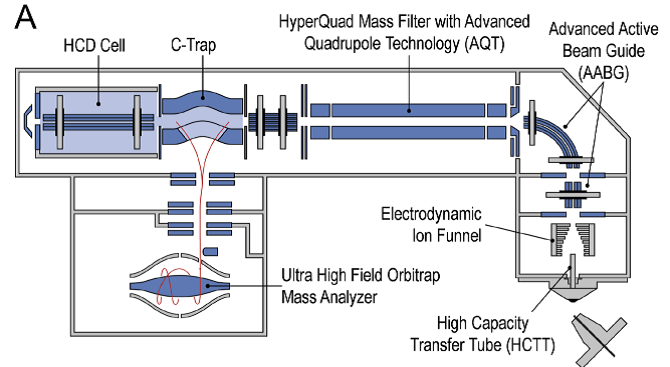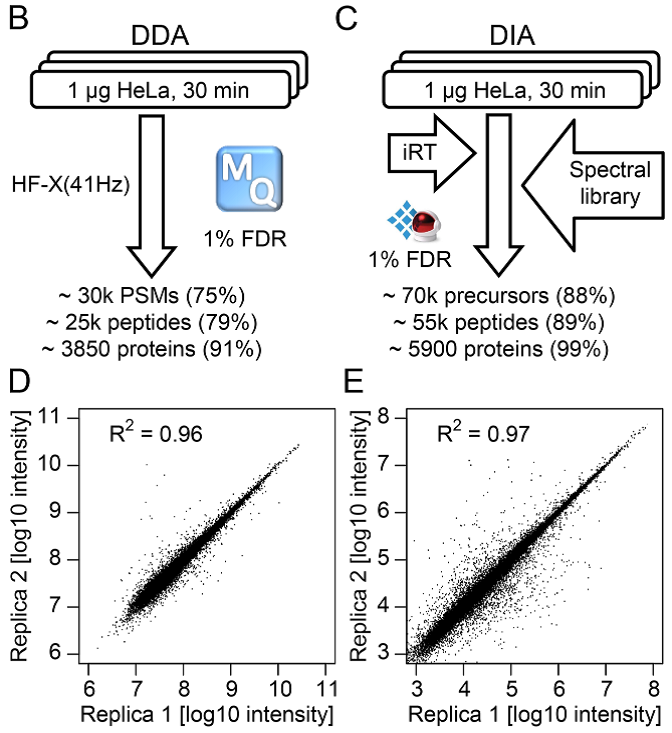Olsen Group evaluates and optimizes new mass spectrometer for rapid proteome analyses
In collaboration with Thermo Fisher Scientific, researchers from the Olsen Group at CPR has beta-tested, optimized, and benchmarked the performance of the latest MS instrument in the benchtop Orbitrap series, the Q Exactive HF-X. The new instrument is an evolution of previous generations by being faster and more sensitive. The largest gains are found using short LC-MS gradients where up to fifty percent more peptide identifications is demonstrated, surpassing one thousand unique peptides sequenced per minute.

Schematic representation of Q-Exactive HF-X
The Q Exactive HF-X is found capable of achieving the same proteome coverage as its predecessor in almost half the time or from lower sample amounts. These fast analysis methods also enable rapid phosphoproteomics with single-shot 15-minute LC-MS gradient analysis sequencing more than five thousand phosphopeptides, which previously required hours of measurement time. Finally, exciting perspectives for data independent acquisition (DIA) are highlighted with reproducible quantification of 55,000 unique peptides covering 5900 proteins in half-an-hour of LC-MS gradient analysis.

Data independent acquisition (DIA) is very promising on new Q Exactive HF-X
The collaborative project between the Olsen Group and Thermo Fisher Scientific is part of the EU-funded FET-OPEN Horizon 2020 project ‘MSmed’, which is coordinated by Matthias Mann, Research Director at CPR.
Authors (CPR authors underscored)
Christian D. Kelstrup, Dorte B. Bekker-Jensen, Tabiwang N. Arrey, Alexander Hogrebe, Alexander Harder, and Jesper V. Olsen.
